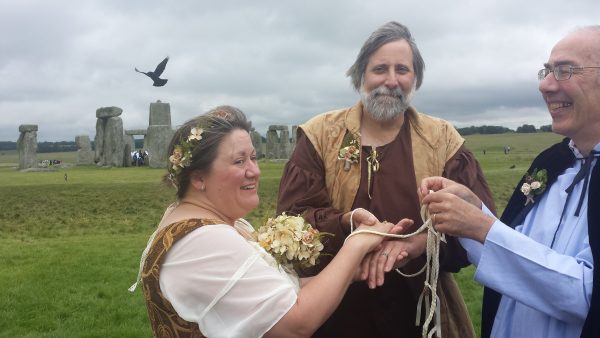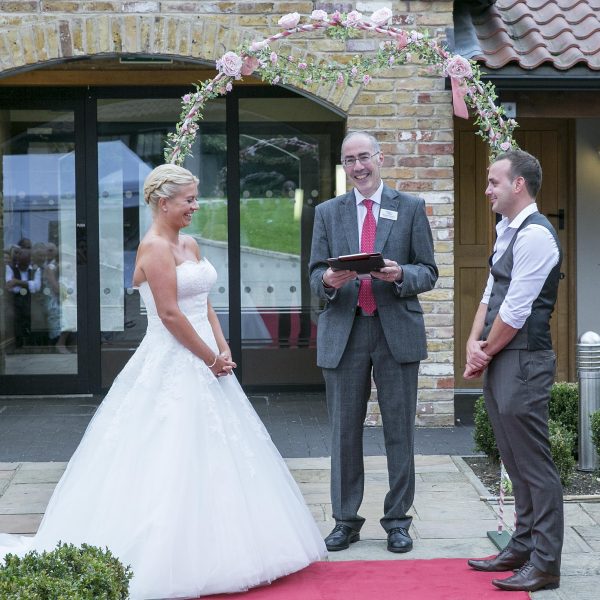Your wedding ceremony should be the most important day of your life. Of course, you want to get it right. But what does it mean, to “get it right”?
There’s a lot of choices out there – possibly, more than you realise.

Religious, or not?
In many cases, the first decision you make together is whether or not you want a full religious ceremony. If not, do you want the other extreme? Of course, you can have a fully secular one, but maybe you prefer a mixture?
Anglican
If your choice is a Church of England ceremony, it’s easier if it’s your local church, but you can choose another one. Normally, the Vicar will be able to take you through everything. There’s no need to visit a Register Office either, as everything can be done in one ceremony. The cost of this starts at £456.
Church of Scotland
Church of Scotland ceremonies can take place anywhere and at any time (as long as your minister is in agreement). You don’t need to be a Scottish resident – but you do need to give between 15 days and three months’ notice at the Register Office.
Roman Catholic
You’ll need to take your baptism and confirmation certificates along to your priest at least six months before you wish to marry. If one of you hasn’t been baptised, your priest’s permission will be needed. You’ll be expected to attend marriage preparation classes, and to attend Mass for six weeks before your wedding day. Additionally, you need to go to your local Register Office to give notice and obtain your marriage licence.
Jewish
You will need to apply to the religious authorities and to the local Register Office. A religious ceremony will normally take place in a synagogue, but the rabbi may agree to conduct it elsewhere.
Secular
If you’re certain you want no religion, then you can opt for a humanist wedding. This will not be recognised in law, so you will still need to attend a Register Office ceremony beforehand. You can hold the humanist wedding wherever you wish, and can write your own vows and hire a humanist celebrant.
Just remember, that in a humanist ceremony, there should be no mention at all of God or even religious references, so if that’s a bit too extreme, you may want to consider a civil ceremony.
 Civil Ceremony
Civil Ceremony
Like the humanist wedding, a civil wedding has no legal validity. It is simply a ceremony that is put together specially, usually by a professional civil celebrant. It should create a fabulous atmosphere and may well reflect the personalities and beliefs of the couple.
You can hold this wherever you like. If it’s in a property licensed for marriages, the registrars can be booked to come out (at an extra charge) and conduct the legal ceremony there. The civil ceremony can follow on straight afterwards. Otherwise, if not in licensed premises, you both need to go to the Register Office beforehand, with two witnesses. (This costs £35.)
Register Office
In addition to the celebrant charge, you will have to pay the registrars for the legal words to be pronounced. To organise this in the first case, go to the local Register Office to give notice. (If you’re not marrying locally, you’ll have to contact that particular Register Office to ensure they have somebody available on your chosen day.)
You’ll need ID, proof of address and nationality, any previous marriage documents and details of your venue. Once issued, the notice will be displayed for 15 days before you can legally marry. Your marriage licence is valid for a year.
You can find your civil celebrant via recommendation, Google – or at this website!
So I hope you see that there are other routes open to you than full religious or humanist. As long as the legal words are said and witnessed properly, everything else can be as original and personalised as you choose. You really can have the day of your dreams!

